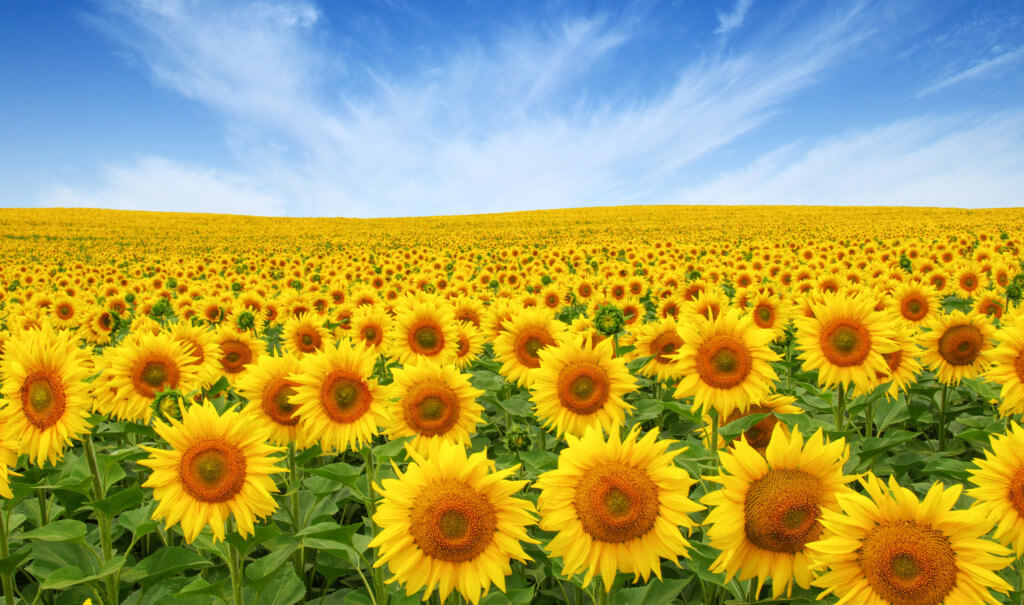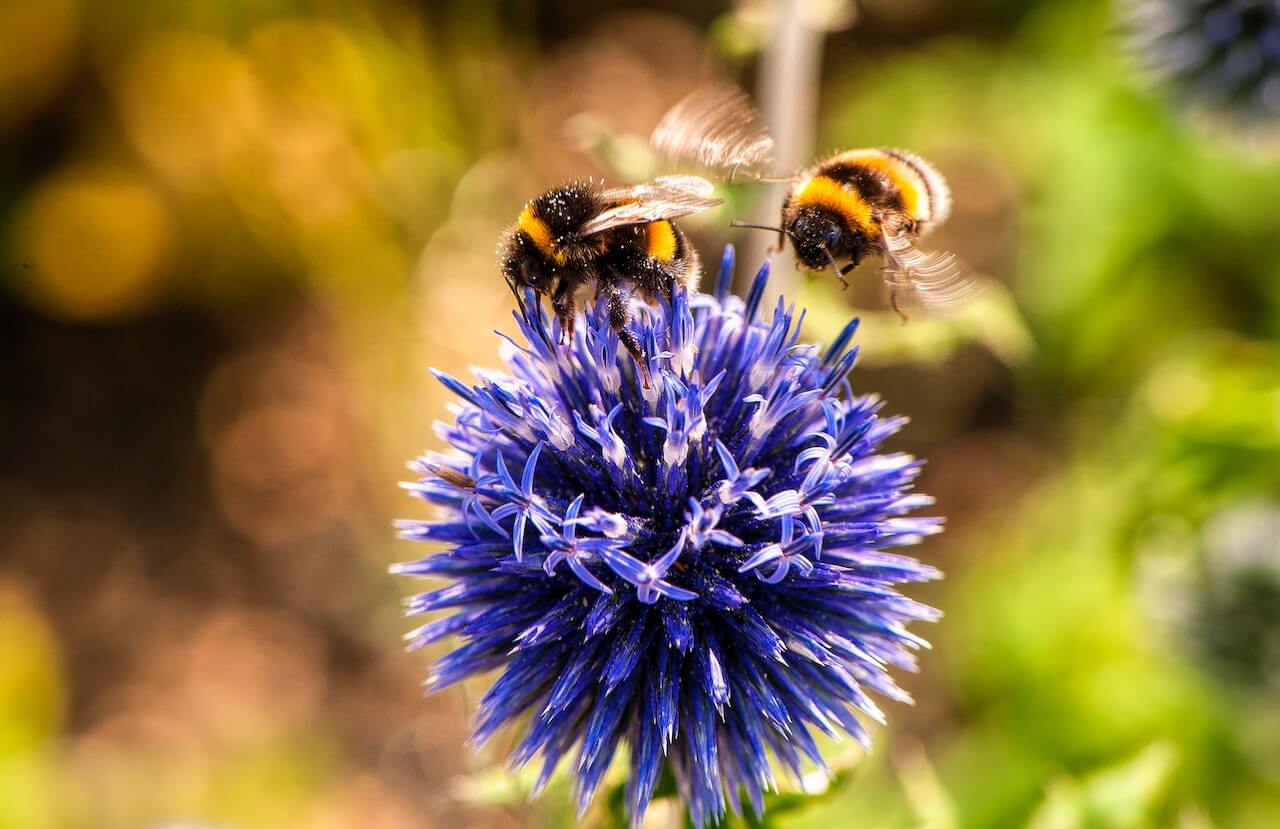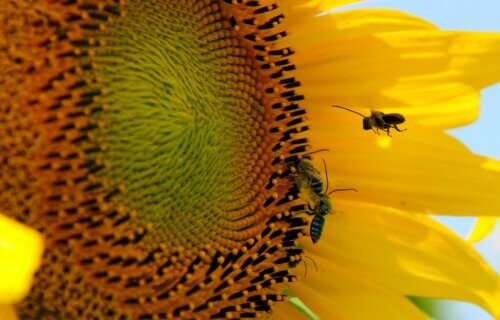AMHERST, Mass. — The sunflower, a natural beauty and the inspiration for Vincent Van Gogh’s most famous paintings, could potentially help save bumblebees from extinction, according to new research. Scientists from the University of Massachusetts Amherst say its pollen provides a natural medicine that protects these vital pollinators from disease.
Their study finds the sunflower’s spiny pollen texture destroys a gut bug called Crithidia bombi, which has been significantly reducing bumblebee populations. The common pathogen increases bee mortality under stressful conditions, decreasing the success of queens in establishing colonies by as much as 40 percent. It also leads to significant reductions in bee mass, male production, and overall fitness.
“We depend on them for diverse, healthy, and nutritious diets,” says Laura Figueroa, incoming assistant professor of environmental conservation at UMass Amherst and lead author of the paper on pollen spines, in a university release.
Sunflowers can grow to astounding heights, with the world record for the tallest standing at a staggering 30 feet. There are over 70 different varieties, including the Russian mammoth, the elf, the teddy bear, and the moulin rouge. Previous studies have shown that sunflower pollen can help bees resist some infections, but the reason for this hasn’t been clear.

Bees eating the shells were nearly parasite-free
To investigate the source of the pollen’s anti-parasitic power, the research team first separated the pollen’s outer shell from the chemical metabolites in its core. They then fed the shell-only pollen to one group of bees and gave the metabolite centers to another group. A third group received whole pollen.
Bees that consumed the spiny shells or whole pollen had up to 94 percent less C. bombi in their gut than those eating only the chemical-packed pollen centers.
“What we found is that infection decreased with increasing sunflower abundance, and perhaps more importantly, queen bee production increased by 30% for every order of magnitude increase in the availability of sunflower pollen,” says the paper’s lead author Rosemary Malfi, who completed the research as part of her postdoctoral work in Adler’s lab.
Bees that ate the pollen exteriors experienced the same reduction in the harmful gut pathogen as those consuming whole pollen.

“We know that the health benefits from some foods come from the specific chemicals in them,” says Figueroa. “But we also know that some foods are healthy because of their physical structure — think of foods high in fiber.”
“We discovered that the bees that ate the spiny sunflower pollen shells had the same response as bees feeding on whole sunflower pollen, and that they suffered 87% lower infections from C. bombi than bees feeding on the sunflower metabolites,” the study author continues.
Bees are responsible for pollinating over a third of our food
They are being threatened by climate change, pesticides, and diseases, which reduce our ability to grow crops. Meanwhile, sunflowers have numerous uses. Their seeds provide food for humans and wild birds, endangered British bees enjoy the pollen and nectar, and sunflower oil is extracted for cooking and use in beauty products. Native Americans used certain types of sunflowers medicinally for respiratory ailments.
While more research is necessary to determine exactly why sunflower pollen benefits queen bees – whether bumblebees have more energy for reproduction if they’re not fighting disease or if C. bombi impairs learning and foraging, so reducing infection increases the bees’ ability to find food – Adler says, “it’s really exciting to show that sunflower not only reduces disease but positively affects reproduction.”
The findings are published in Functional Ecology and Proceedings of the Royal Society B: Biological Sciences.
South West News Service writer Mark Waghorn contributed to this report.


I guess bees are a kinda bug we SHOULDN’T eat.
Bees are Awesome